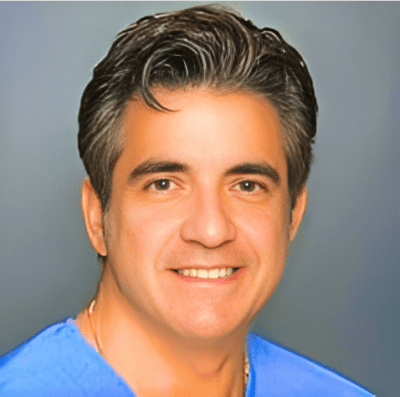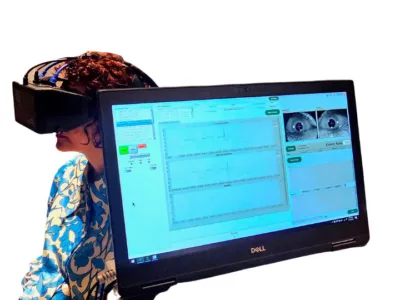
OUR Psychiatrist in Fort Lauderdale, Florida Location
OUR Psychiatrist in Fort Lauderdale, Florida Location
OUR Psychiatrist in Fort Lauderdale, Florida Location
BRIAN F. GREER, MD
Dr. Brian F. Greer, MD, is a distinguished psychiatrist specializing in child and adolescent psychiatry. He graduated magna cum laude with a Bachelor of Science degree, minoring in religion and chemistry, from the University of Miami. Dr. Greer earned his MD in psychiatry from the same institution and completed his residency and fellowship at Jackson Memorial Hospital, where he was named Chief Fellow in his final year. His academic achievements include receiving the Clinical Scholar Award for his research on traumatized children.
Dr. Greer has made numerous scholarly presentations on topics such as the mind-gut connection, nutrient density, mitochondrial dysfunction in bipolar disorder, and the role of omega-3 fatty acids in treating ADHD and bipolar disorder. He is board-certified in both general psychiatry and child and adolescent psychiatry by the American Board of Psychiatry and Neurology. Recognized for his expertise, Dr. Greer is the author of the book "Why Women Get the Blues" and has appeared as a guest on the Oprah Winfrey Show.
Dr. Brian F. Greer
Child and Adolescent Psychiatrist
EDUCATION
MD: Psychiatry, University of Miami, Miami, FL
BS: Bachelor of Science, University of Miami, Miami, FL
- Biology Minor in Religion & Chemistry Magna Cum Laude
Residency: Psychiatry, Jackson Memorial Hospital, Miami, FL
Fellowship: Child and Adolescent Psychiatry, Jackson Memorial Hospital, Miami, FL
ACADEMIC ACHIEVEMENT:
- Clinical Scholar Award from the University of Miami/Jackson Memorial Hospital Final Year of Child/Adolescent Psychiatry Training
- Research on traumatized children: Paper “Borderline Psychopathology on Male
Pre-Adolescent Sex Offenders” - Chief Fellow by the chairman for the final year of training
- Presentation to Living Well Connections: Dietary Factors in the Mind-Gut Connection/Microbiome and Contribution to Mood Disorders”
- LaPorte Center: Scholarly Presentation: Lithium Orotate: Effect on Enhanced
Cognitive Function through Increasing BDNF (Brain Derived Neurotropic Factor) - Scholarly Presentation: Nutrient Density, Antioxidants, and Anti-inflammatory Nutrients in Enhancing Mental Wellness
- National Alliance Mentally Ill, N.A.M.I.: Improving Memory and Cognitive
Function through Diet and Neuro-Nutrition - LaPorte Center: 2019-2020
- Series of lectures to staff: The role of Mitochondrial Dysfunction in Bipolar Disorder
- The role of DHA and EPA (Docosahexaenoic Acid and Eicosatetraenoic acid): Omega-3 Fatty Acids in the treatment of both Child/Adolescent A/D/H/D. And Bipolar Disorder.
BOARD CERTIFICATION:
- American Board of Psychiatry and Neurology
- Psychiatry (American Board of Psychiatry and Neurology)
- Child & Adolescent Psychiatry (American Board of Psychiatry and Neurology)
RECOGNITION:
- Guest on the Oprah Winfrey Show
- Author of the book: Why Women Get the Blues
Languages
English
What is a psychiatrist?
A psychiatrist is a medical doctor specializing in mental health, including substance use disorders. Psychiatrists are qualified to assess both the mental and physical aspects of psychological problems. Unlike psychologists, who typically have a doctorate in psychology, psychiatrists have a medical degree (MD or DO), a psychiatrist can prescribe medication, perform physical exams, order and interpret lab tests, and provide therapy.
The Essential Role of Our Adult/Child & Teen Psychiatrist in Ft Lauderdale After Traumatic Brain Injury
Traumatic brain injury (TBI) can have profound and long-lasting effects on an individual’s mental health and cognitive functioning. In the aftermath of a TBI, the role of a psychiatrist becomes crucial in facilitating recovery and improving the quality of life for affected individuals. If you or a loved one has experienced a TBI, understanding the role of a psychiatrist in Fort Lauderdale can be a vital step toward comprehensive and effective treatment.
Understanding Traumatic Brain Injury
A TBI occurs when an external force injures the brain, leading to various physical, cognitive, and emotional symptoms. These can range from mild concussions to severe brain damage, with symptoms including memory loss, mood swings, depression, anxiety, and difficulty concentrating. Given the complex nature of TBIs, a multidisciplinary approach is essential for recovery.
The Intersection of Psychiatry and Neurology in TBI Recovery: A Collaborative Approach
The Psychiatrist’s Role in TBI Recovery
Psychiatrists are medical doctors specializing in mental health, equipped with the expertise to diagnose and treat the psychological and behavioral aspects of TBI. In Ft Lauderdale, psychiatrists play a pivotal role in several key areas of TBI recovery:
Assessment and Diagnosis: The first step in managing a TBI is a comprehensive assessment to understand the extent of the injury and its impact on mental health. A psychiatrist in Ft Lauderdale conducts detailed evaluations, including cognitive tests and psychological assessments, to determine the specific needs of the patient.
Individualized Treatment Plans: Each TBI is unique, as is the patient’s response to injury. Psychiatrists develop personalized treatment plans tailored to the individual’s symptoms and needs. This may include medication management, psychotherapy, and cognitive rehabilitation to address mood disorders, anxiety, and cognitive impairments.
Medication Management: TBIs often lead to mood disorders such as depression and anxiety. A psychiatrist in Ft Lauderdale can prescribe and manage medications to help stabilize mood and reduce symptoms, enabling patients to engage more effectively in their rehabilitation process.
Psychotherapy and Counseling: Emotional support is critical for individuals recovering from TBI. Psychiatrists provide psychotherapy and counseling to help patients cope with the emotional aftermath of their injury. Techniques such as cognitive-behavioral therapy (CBT) are commonly used to address negative thought patterns and promote mental well-being.
Collaboration with Multidisciplinary Teams: Effective TBI recovery often involves a team of healthcare professionals, including neurologists, physical therapists, occupational therapists, and speech therapists. Psychiatrists in Ft Lauderdale work collaboratively with these specialists to ensure a holistic approach to treatment, addressing both the physical and mental aspects of recovery.
Support for Families and Caregivers: The impact of a TBI extends beyond the individual to their families and caregivers. Psychiatrists provide guidance and support to families, helping them understand the injury, cope with changes, and provide effective care and support to their loved ones.
The journey to recovery after a traumatic brain injury can be challenging, but the support of a skilled psychiatrist in Ft Lauderdale can make a significant difference. By addressing the mental health needs of TBI patients, psychiatrists play an essential role in promoting recovery, enhancing quality of life, and helping individuals regain their independence. If you or someone you know is dealing with the effects of a TBI, seeking the expertise of a psychiatrist in Ft Lauderdale is a crucial step toward comprehensive care and recovery.
Headache has been underestimated, under-recognized and under-treated throughout the world.
Facts and Statistics:
Prevalence of Mental Illness: According to the National Institute of Mental Health (NIMH), nearly one in five U.S. adults live with a mental illness (52.9 million in 2020).
Demand for Psychiatrists: The demand for psychiatrists has been growing due to the increasing recognition of mental health’s importance. The Association of American Medical Colleges (AAMC) projected a shortage of 14,280 to 31,109 psychiatrists by 2024.
Suicide Rates: According to the Centers for Disease Control and Prevention (CDC), suicide is a significant concern, with mental health conditions often playing a central role. Suicide rates have increased by 33% from 1999 through 2019.
Medication Use: The use of psychiatric medications is common, with about one in six Americans taking some type of psychiatric medication, including antidepressants, antipsychotics, or anxiety medications.
Resources:
- American Psychiatric Association (APA): Provides guidelines and information about psychiatry as a profession.
- National Institute of Mental Health (NIMH): Offers data on mental health statistics, research updates, and information about mental disorders.
- World Health Organization (WHO): Covers global mental health statistics, including the prevalence of mental health disorders and access to care.
These resources can provide a more detailed understanding of psychiatry and its impact on public health.

New Revolutionizing Mild Cognitive Impairment Research
Our groundbreaking study on Mild Cognitive Impairment (MCI) is reshaping the landscape of neurological research. Dive into the complexities of the brain as we unveil the potential of the Oculomotor, Vestibular, and Reaction Time (OVRT) assessment in providing objective insights into MCI.

Dr. Eric F. Ciliberti: Our Best Neuro-ophthalmologist in Broward, County Location
Optimizing Visual Health: Meet Top Neuro-Ophthalmologist in Broward. Discover how Dr. Ciliberti enhances visual health at Radius TBI in Florida.

Best Psychotherapist in Broward County and Neurofeedback Therapist
Your Trusted Best Choice for Neurofeedback Physiologist and One of the Best Psychotherapist in Broward County, FL.

Explore Concussion Treatment Options in Tampa, FL
Discover comprehensive concussion treatment options at Radius TBI in Tampa, FL. Our expert team offers solutions for a successful recovery.

When it comes to your post-concussion/ head injury care, choosing Radius TBI as your brain rehabilitation center can provide numerous benefits and advantages

The Critical Role of Emergency Medicine in Treating TBIs: Dr. Chern’s Impact on TBI Treatment
Uncover the critical role of an emergency medicine physician like Dr. Chern in rapidly assessing, stabilizing, and coordinating care for Traumatic Brain Injury patients.

Are you struggling with dizziness, vertigo, or unexplained balance issues?
Videonystagmography (VNG) is a diagnostic procedure that assesses the performance of the vestibular system, the brain and the inner ear, which is essential for maintaining balance and spatial orientation. Often used to distinguish between central and peripheral causes of dizzy spells and vertigo, VNG is the gold standard for detecting vestibular disorders.
Fort Lauderdale Medical Team
Radius TBI comprises a multidisciplinary medical team of neurology, neuropsychology, audiology, neuro-ophthalmology, psychology, and physical therapy dedicated to providing outstanding medical care and improving the quality of life in patients suffering from traumatic brain injury (TBI) and concussion.




